Last updated on March 14, 2024
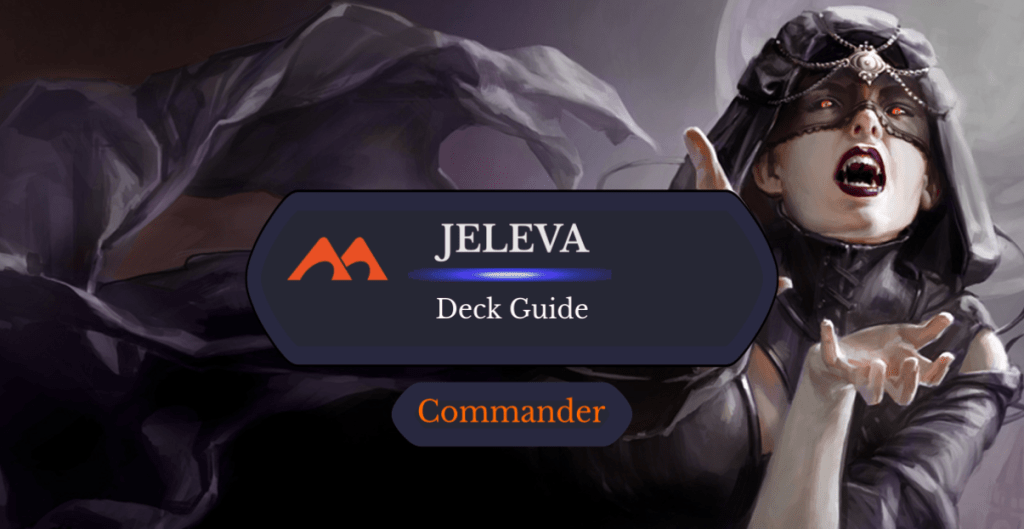
Jeleva, Nephalia's Scourge | Illustration by Cynthia Sheppard
There’s something delightful about playing with old commanders. Jeleva, Nephalia's Scourge was released in the Commander 2013 product, one of the first direct-for-Commander products before every set had its associated EDH precons.
This doesn’t mean it’s not powerful! Jeleva boasts an interesting design that heavily interacts with the Commander ruleset. I can’t pretend it’s the biggest or best Grixis () commander in the format, but it’s certainly a great casual commander.
Let’s dive into this oldie and explore the new good cards we can play!
The Deck
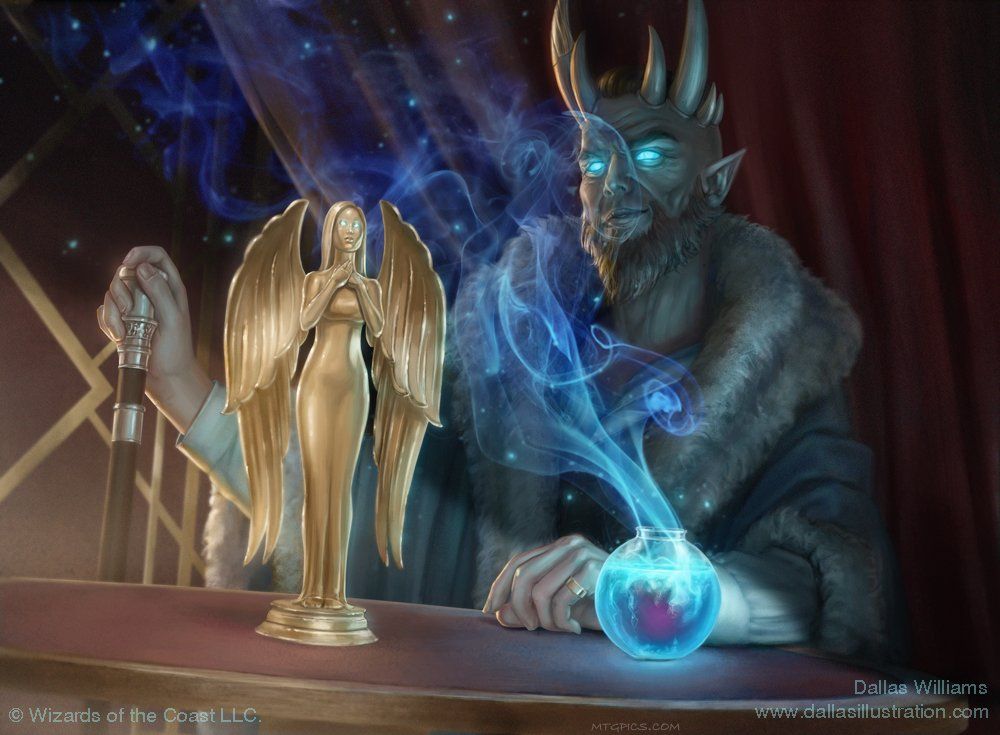
An Offer You Can't Refuse | Illustration by Dallas Williams
Commander (1)
Planeswalkers (1)
Creatures (8)
Harmonic Prodigy
Nightscape Familiar
Cormela, Glamour Thief
Kess, Dissident Mage
Prosper, Tome-Bound
Omnispell Adept
Niv-Mizzet, Parun
Torrential Gearhulk
Instants (19)
An Offer You Can't Refuse
Brainstorm
Lightning Bolt
Malakir Rebirth
Vampiric Tutor
Arcane Denial
Bitter Triumph
Counterspell
Countersquall
Cyclonic Rift
Delay
Increasing Vengeance
Infernal Grasp
Flame of Anor
Prismari Command
Snuff Out
Mystic Confluence
Sublime Epiphany
Magma Opus
Sorceries (21)
Flame Slash
Vandalblast
Shatterskull Smashing
Toxic Deluge
Mizzix's Mastery
Seize the Day
Bribery
Lórien Revealed
Time Warp
World at War
Breach the Multiverse
Cruel Ultimatum
Sea Gate Restoration
Aminatou's Augury
Army of the Damned
Call Forth the Tempest
Decree of Pain
Fevered Suspicion
Blasphemous Act
In Garruk's Wake
Time Stretch
Enchantments (2)
Passionate Archaeologist
Thousand-Year Storm
Artifacts (10)
Sol Ring
Arcane Signet
Dimir Signet
Izzet Signet
Mind Stone
Rakdos Signet
Talisman of Creativity
Talisman of Dominance
Talisman of Indulgence
Thought Vessel
Lands (38)
Blightstep Pathway
Blood Crypt
Bloodstained Mire
City of Brass
Clearwater Pathway
Command Tower
Crumbling Necropolis
Hall of the Bandit Lord
Haunted Ridge
Island x4
Luxury Suite
Mana Confluence
Morphic Pool
Mountain x4
Mystic Sanctuary
Otawara, Soaring City
Polluted Delta
Prismatic Vista
Riptide Laboratory
Riverglide Pathway
Scalding Tarn
Shipwreck Marsh
Steam Vents
Stormcarved Coast
Swamp x4
Takenuma, Abandoned Mire
Training Center
Watery Grave
Xander's Lounge
Most spellslinger decks focus on casting a flurry of spells to overwhelm their opponents with repeated triggers from cards like Niv-Mizzet, Parun, Firebrand Archer, or Archmage Emeritus.
Our deck does the opposite, focusing on the biggest, flashiest spells it can cast! Expensive cards like Call Forth the Tempest or Fevered Suspicion swing games in your favor upon resolution and work well with a commander that can cast them for free.
This isn’t to say we don’t have more traditional spellslinger payoffs. Niv-Mizzet, Parun is a support card, and we have plenty of cheap cards to cast during the early turns of the game. We’re using an older commander, so this deck seeks to emulate the classical feel of big, flashy spells instead of focusing on jamming all the staples and must-includes recent years have introduced to the format.
This does keep the deck in the range of casual, toeing mid-powered. Casting spells for free is intrinsically broken but the limitations of our commander give our opponents plenty of space to interact; we can always end up with Jeleva locked away, forcing us to hard cast our spells. As such, this deck will struggle to keep up with higher-powered tables filled with decks jamming the most efficient option at every point.
The Commander
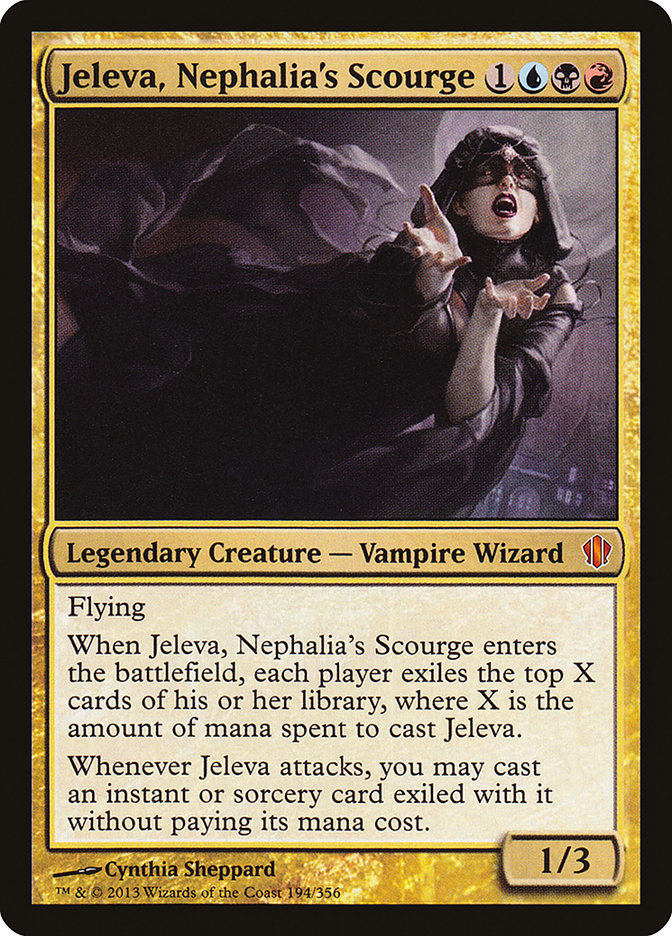
I mentioned the limitations of Jeleva, Nephalia's Scourge, but don’t let them scare you away from this exciting commander. Let’s start by considering these weaknesses.
First and foremost, Jeleva, Nephalia's Scourge must attack to get any value. Needing a card to survive a full turn cycle is a large ask, especially when the cards get exiled face-up so your opponents know just how dangerous it can be.
Secondly, Jeleva doesn’t keep track of the spells. The exiled cards are tied to that specific instance of Jeleva. lLet’s say you cast it and exile your best cards, and then your opponent kills Jeleva. You can recast it, but the new instance of the card can’t use any of the spells exiled by previous ETBs. The drawback is that Jeleva can ETB, hit some amazing spells, then die and never cast them. Even worse, you could whiff on the second or third ETB!
While those are distinct weaknesses, playing at a lower power level does a lot to assuage them. This is also a high-risk, high-reward commander; the benefit for Jeleva surviving is casting massive spells!
This commander also boasts a cunning design that works with the Commander's ruleset. All five commanders from Commander 2013 were designed to interact with the command zone in some fashion. Jeleva, Nephalia's Scourge benefits from the commander tax. The more you recast it, the more cards you exile. This is especially useful since it can run out of resources, allowing you to find more and more gas as the game progresses. You can even consider killing Jeleva with one of the exiled removal spells to reset it.
While Jeleva has some distinct weaknesses, I think that’s fine. This isn’t a sleek cEDH Grixis list; it’s a fun Timmy-esque list jamming massive instants and sorceries instead of various flavors of Ghalta. Jeleva is the perfect commander for the game plan and power level this deck wants to achieve.
Flashy Spells
Not to bury the lede further, let’s dive into the big spells this deck wants to cast. While Jeleva, Nephalia's Scourge can cast spells from all four players’ libraries, this deck is built to be self-reliant; counting on our opponents to have spells worth casting is a risky move. While we’re happy to get some of their spells, these are cards worth playing for free.
What’s better than casting one spell a turn through your commander? Casting several! World at War and Seize the Day provide our commander with plenty of extra combat phases to cast more spells. That’s the primary role of Time Warp and Time Stretch as well, though taking a whole extra turn has greater utility than a mere combat phase.
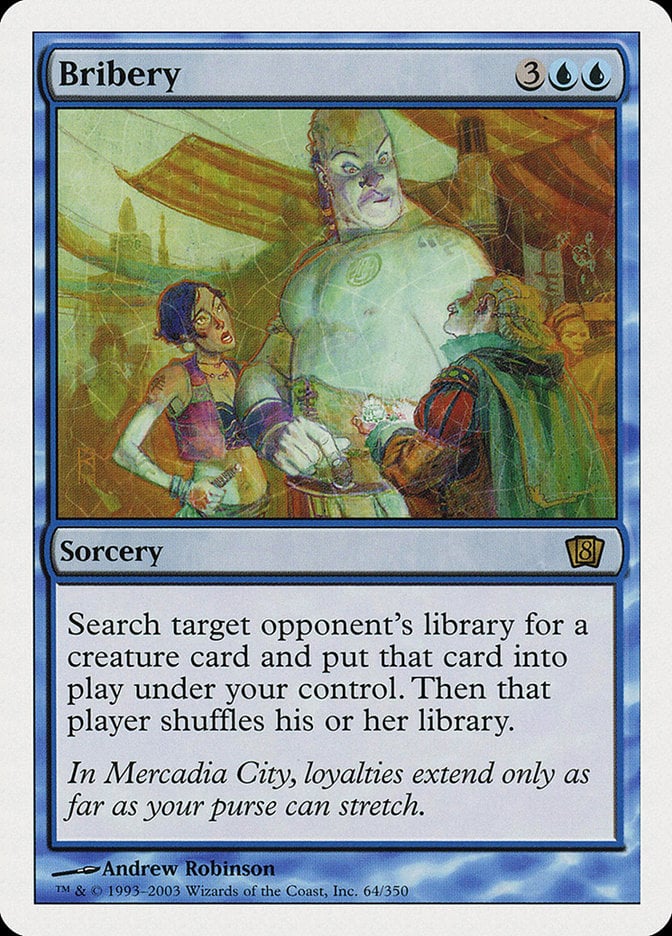
Bribery nabs the best creature from an opposing deck. Try to target green players who might top their curve with Eldrazi or commanders like The Scarab God that indicate a potential reanimation strategy.
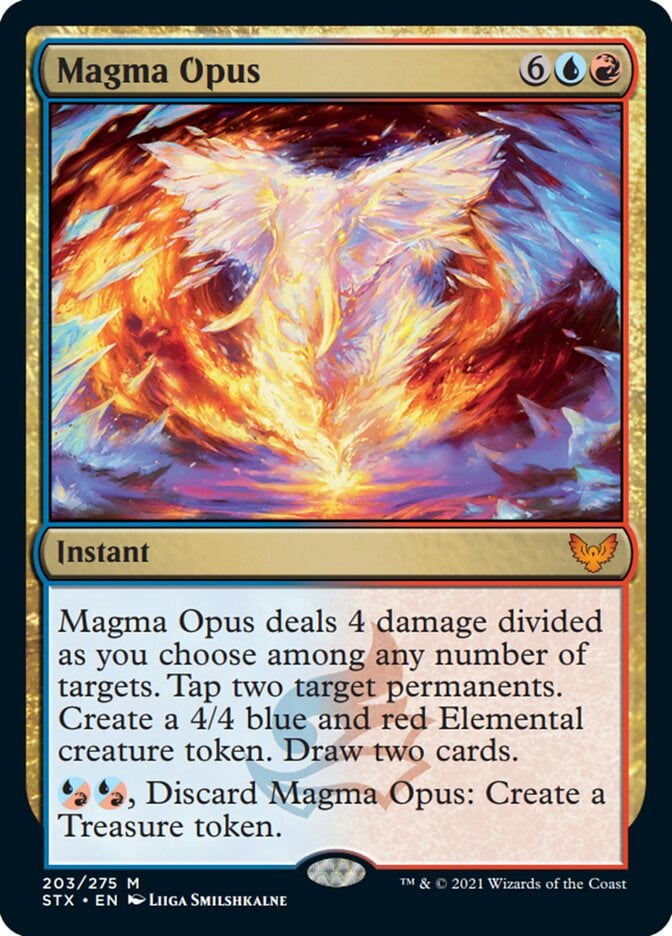
Magma Opus offers lots of versatility. It’s a swingy spell to cast for free but can accelerate us toward Jeleva or other payoffs in a pinch; even if we discard it early, the deck has a few ways to cast it from the graveyard.
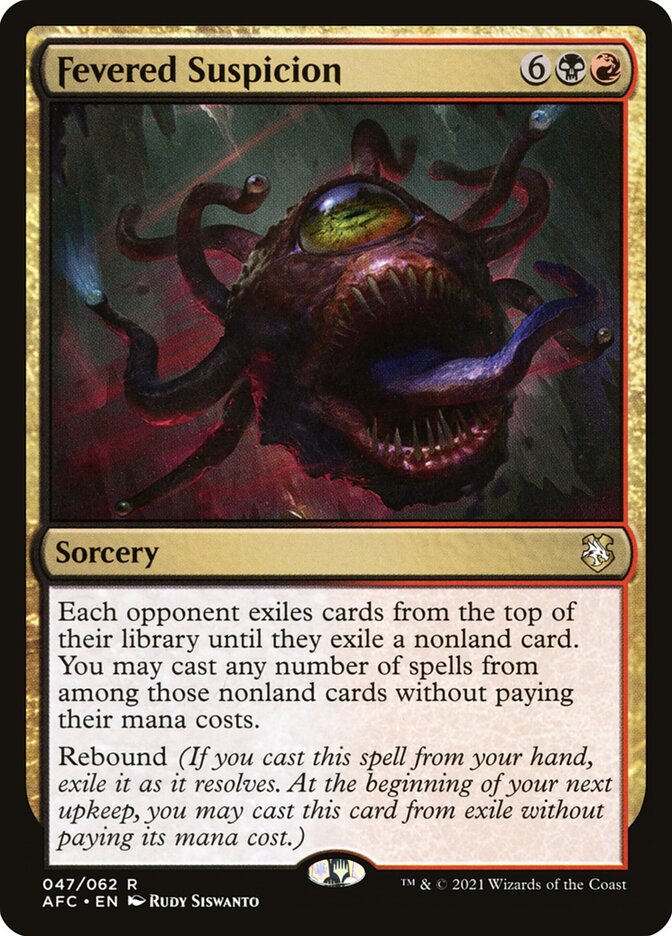
Fevered Suspicion always runs the risk of whiffing. You don’t want it to hit too many counterspells, board wipes, or other effects that aren’t beneficial to cast. But rebound mitigates that risk and often builds a powerful board state.
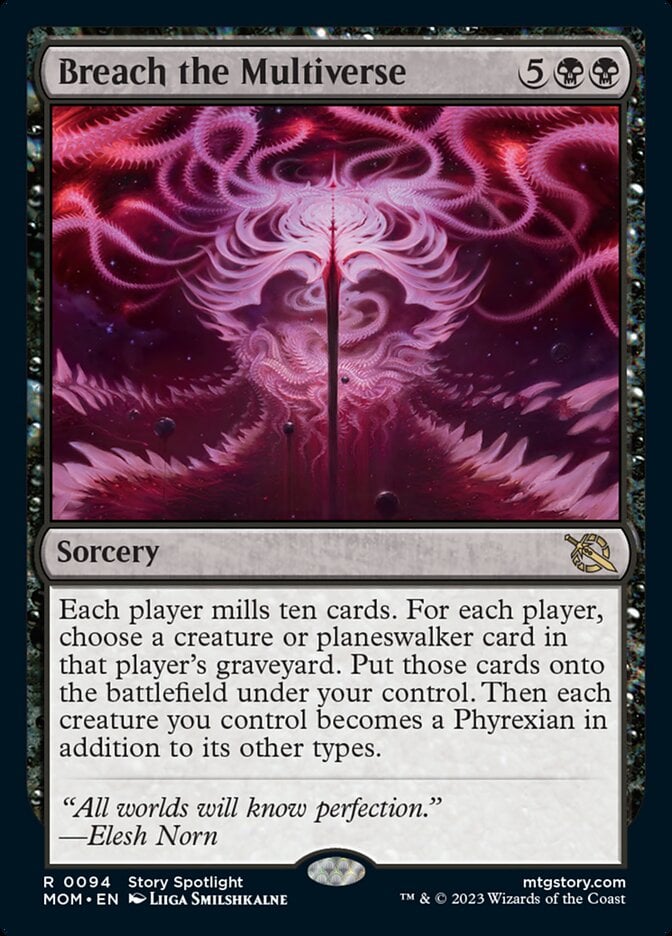
Breach the Multiverse instantly puts a game in your favor; you can’t cast it twice but you’re rarely whiffing on good creatures and planeswalkers after milling 10. Remember that the card you return to play doesn’t need to be one of the 10 milled cards!
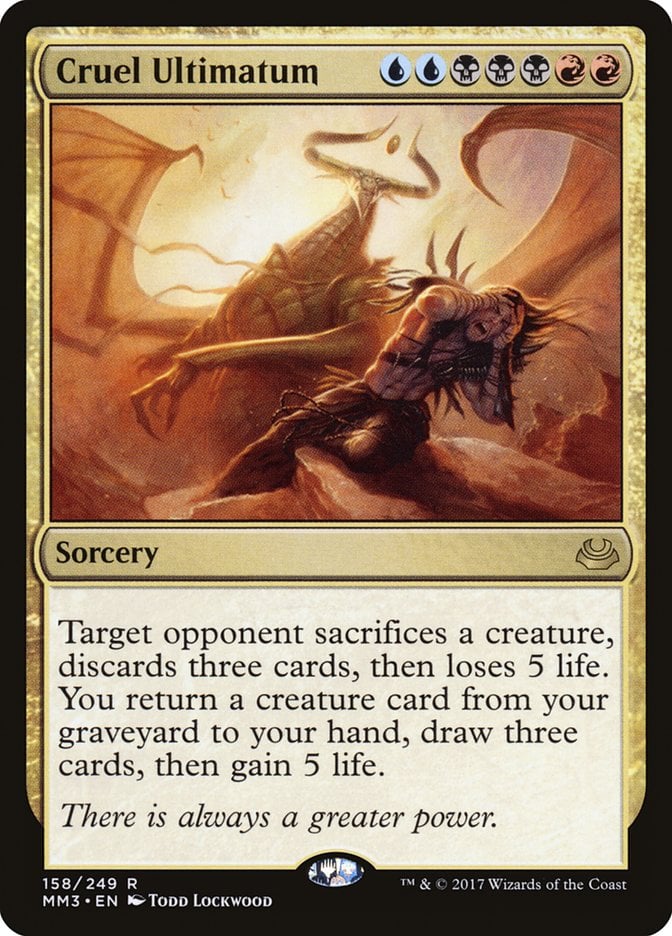
Cruel Ultimatum is the biggest Grixis spell people think about when it comes to big spellslinger strategies. That prestige would be enough to get a slot but it’s also a powerful card.
In Garruk's Wake and Decree of Pain are our two biggest wraths that we want to cast with Jeleva. Our deck has so few creatures that running multiple wraths will rarely set it behind. Sure, Jeleva dies, but getting to reset our commander while putting our opponents behind is often beneficial.
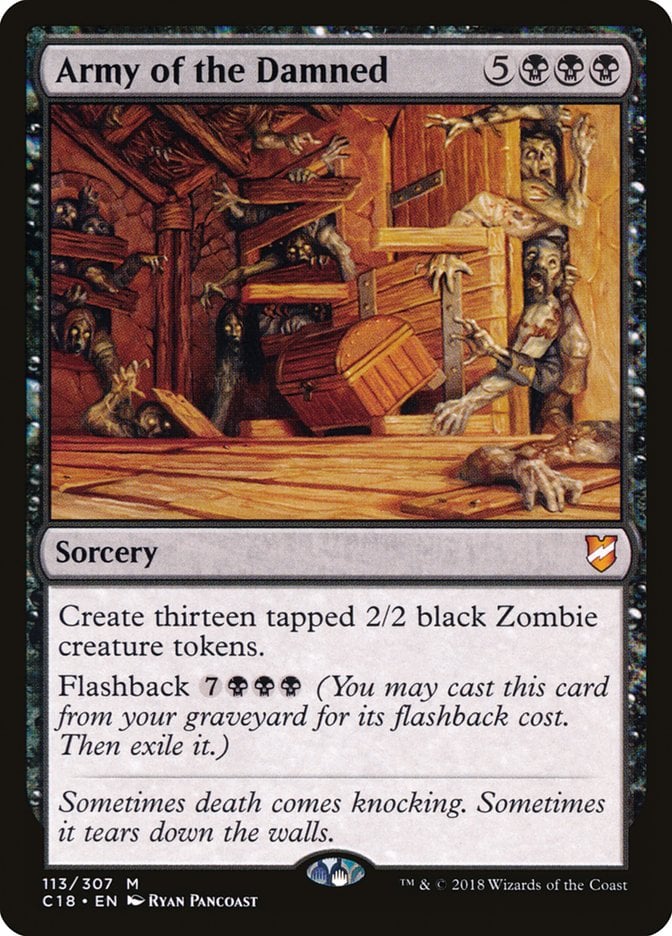
Army of the Damned is one of the best black token generators and is enough to flood the game with zombies on the first cast; casting it again thanks to flashback drives the nail further into our opponents’ coffins.
Of all these spells, Aminatou's Augury might be the scariest. It continues the theme of casting free spells and swamps our opponents. Playing this and hitting Call Forth the Tempest can be enough to win games.
Support Pieces
While the above spells are powerful and capable of closing games, they need a little support. These cards extract extra value from our spells, let us recast them, or even copy those spells to give our deck the edge necessary to steal games.
Increasing Vengeance and Ral, Storm Conduit are both powerful cards. Jeleva makes them even better by providing free, explosive spells for them to copy. They’re especially potent with our extra turn spells.
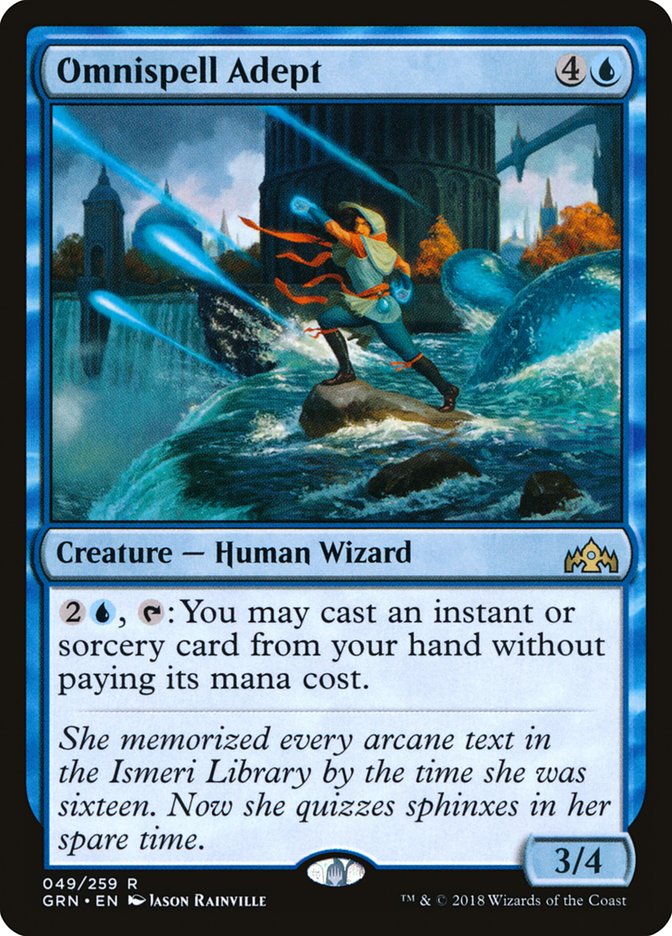
Omnispell Adept fills a very niche role. It’s an alternative to Jeleva should it get locked down behind a Drannith Magistrate or similar effect; Adept allows us to cast 6+ mana spells without investing nearly that much mana into them.
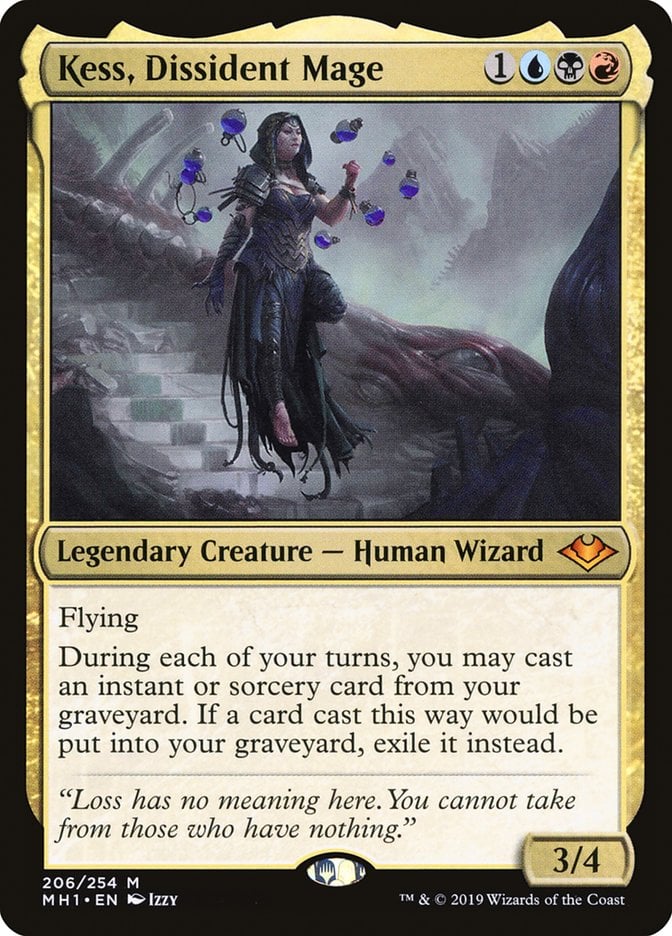
Kess, Dissident Mage gives this deck all the late game it could want. Giving any of our explosive spells flashback turns games in our favor and ensures we’ll pull ahead with enough time.
Prosper, Tome-Bound and Passionate Archaeologist benefit from casting spells from exile. Prosper is just a powerful creature that provides mana acceleration and card draw while the Background can be a lethal win condition once it starts smacking our opponents for 6+ damage each combat.
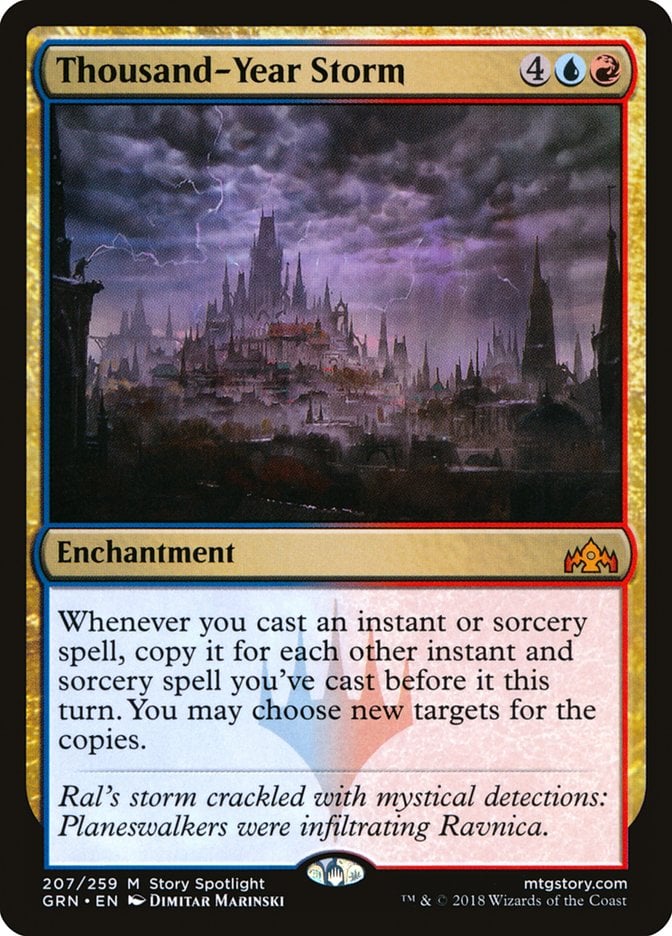
Thousand-Year Storm is the kind of card that comes to mind when I think of Commander: big, expensive, a bit durdly, but dominant when given the time to do its thing. Even the humble Lightning Bolt can become a win condition with enough gas and planning.
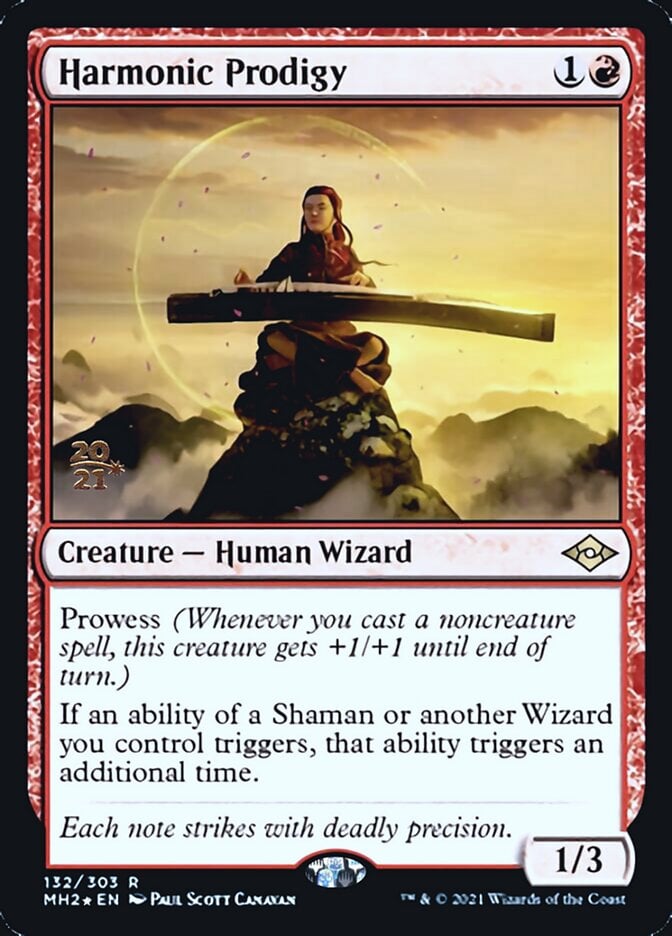
Harmonic Prodigy provides an exceptional support piece to Jeleva, who happens to be a wizard. Not only do we get to exile twice as many cards when it comes into play, but the Prodigy doubles the combat trigger as well, netting two free spells for every attack.
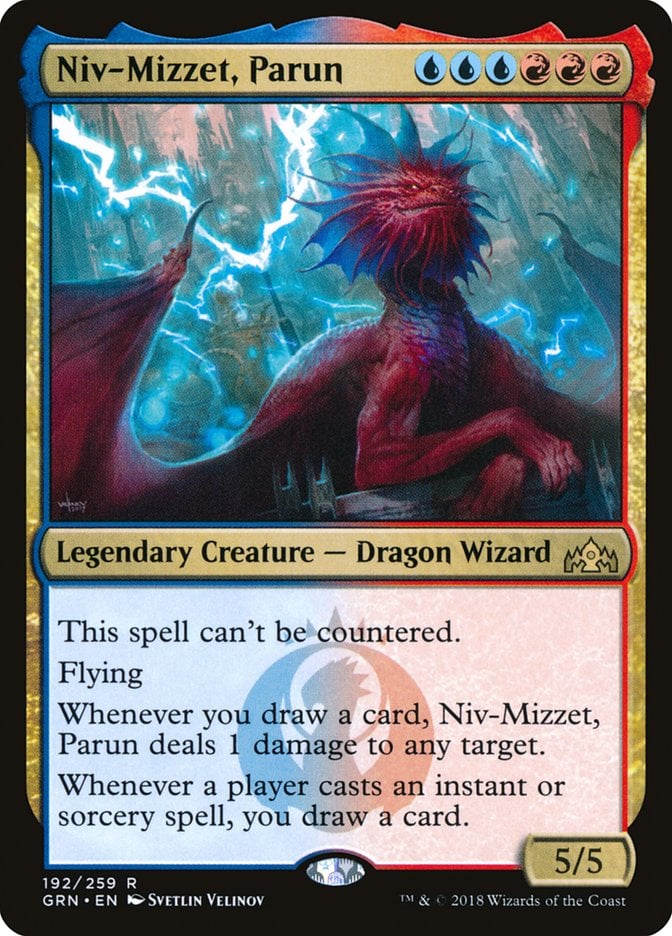
Niv-Mizzet, Parun might be the least fair card in this entire deck. Niv-Mizzet is one of the most powerful spellslinger win conditions in the format and among the most pushed cards in the game. Board control, card advantage, stats, evasion, and a win condition all in one card feel like more value than some Eldrazi offer at a higher mana cost.
Interaction
Interactive spells are the last chunk of the deck; it’s a pretty simple build, plus most of our support pieces work with these spells. Getting to cast these for free isn’t as appealing as the flashy spells but represents a solid strategy. While we have a robust suite of countermagic and removal, I’m only highlighting the stand-out cards below rather than staples like Counterspell.
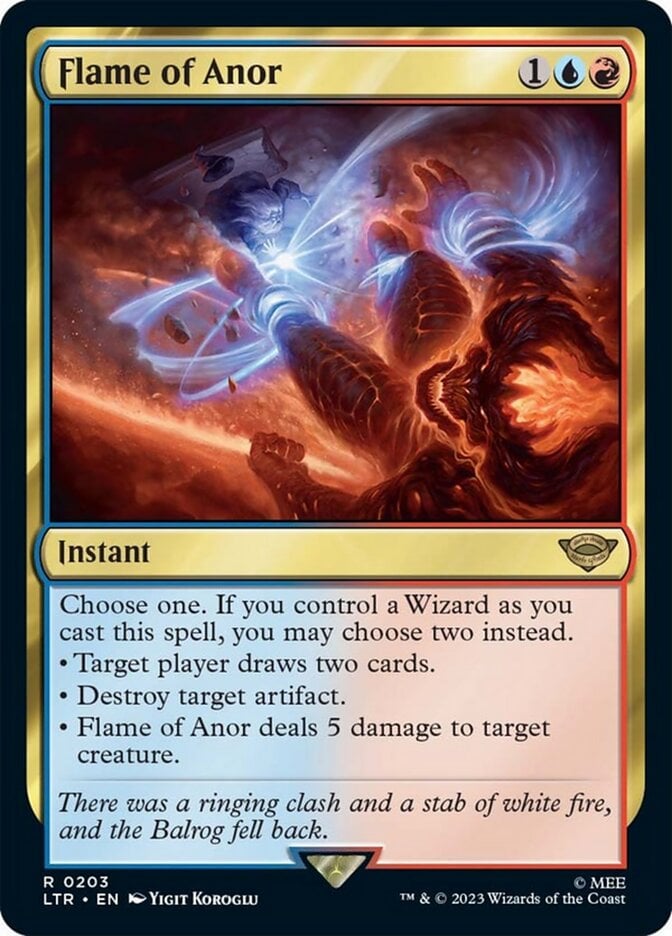
Flame of Anor is a must-have for any EDH deck with a wizard in the command zone. This primarily interacts with creatures and destroys artifacts, but doubling as a Divination when the mood’s right pushes this over the top.
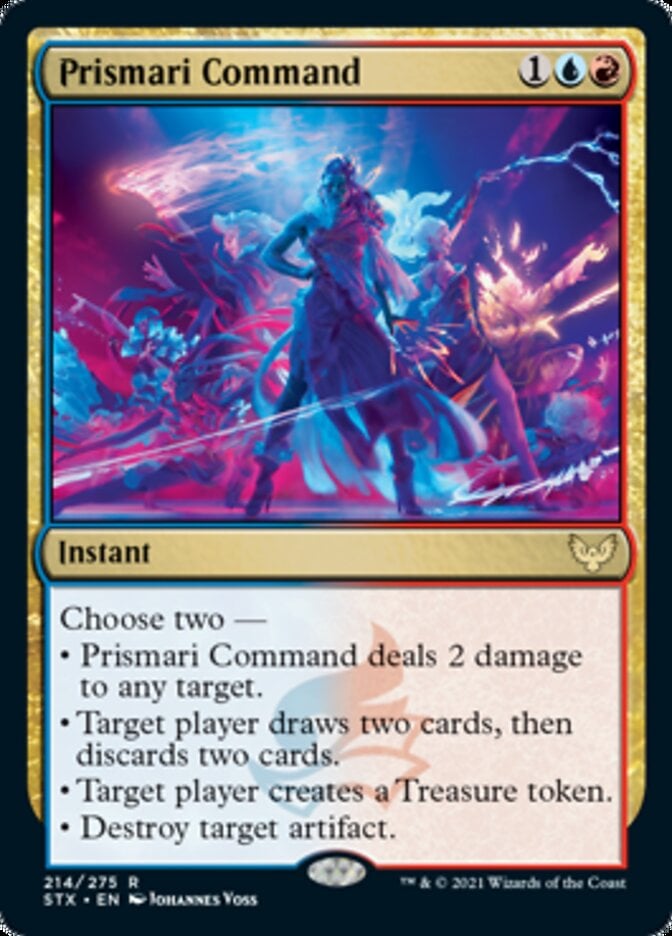
Prismari Command does a bit of everything. Filtering our hand and getting Treasure is great, and setting our opponents behind a small creature or an artifact is great. No two modes are bad together, making this command spell one heck of a staple.
While I champion playing fewer board wipes, this deck has next to no creatures and is pretty controlling, so playing a bunch of wraths suits the game plan. In addition to our big board wipes, we have Blasphemous Act and Toxic Deluge to ensure our opponents retain as few creatures as possible. Some might say Cyclonic Rift isn’t a casual card; to them, I say games of Magic should end.
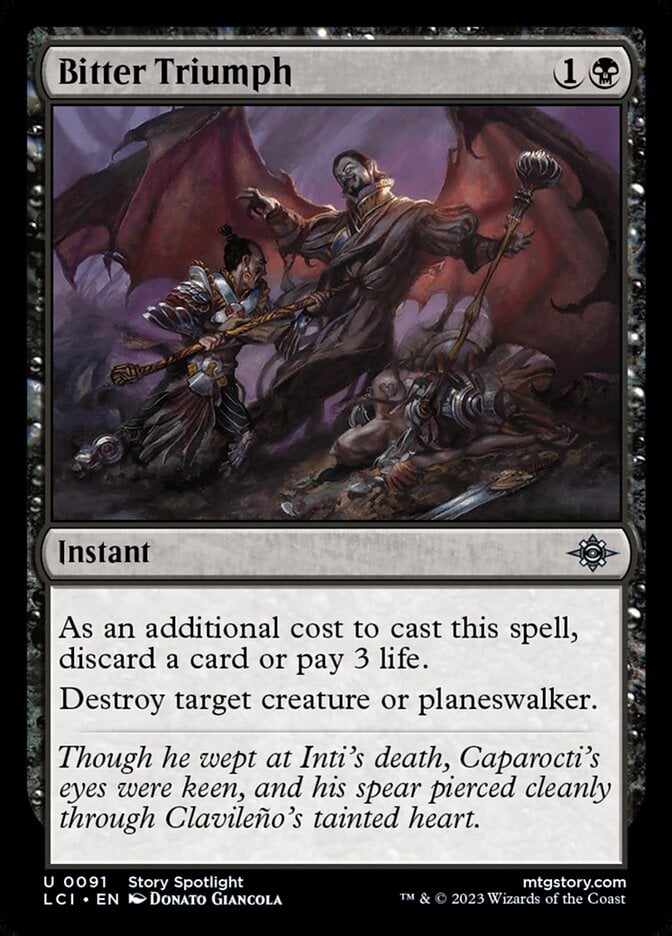
Bitter Triumph is a relatively new addition from The Lost Caverns of Ixalan that’s well worth a slot; paying 3 life to kill anything rarely matters in Commander with such high life totals. This deck can extract value from the discard thanks to recursive effects like Torrential Gearhulk and Mizzix's Mastery.
The Mana Base
We have 10 mana accelerants to power out our spells should Jeleva fail in its duties. Sol Ring, of course, alongside all the on-color Talismans and Signets, plus Arcane Signet, Thought Vessel, and Mind Stone to tie it all together. The 2-cost mana rocks are especially potent since they let us play Jeleva on turn 3.
There’s not a lot of room for utility lands in a 3-color mana base, especially one as demanding as this, but some value lands still made the cut.
I’m hard-pressed to build decks without Kamigawa: Neon Dynasty’s channel lands, so Takenuma, Abandoned Mire and Otawara, Soaring City made it in. I feel similarly strongly about MDFC lands from Zendikar Rising; this deck gets the bonus of Sea Gate Restoration being the kind of explosive spell we want to cast with Jeleva.
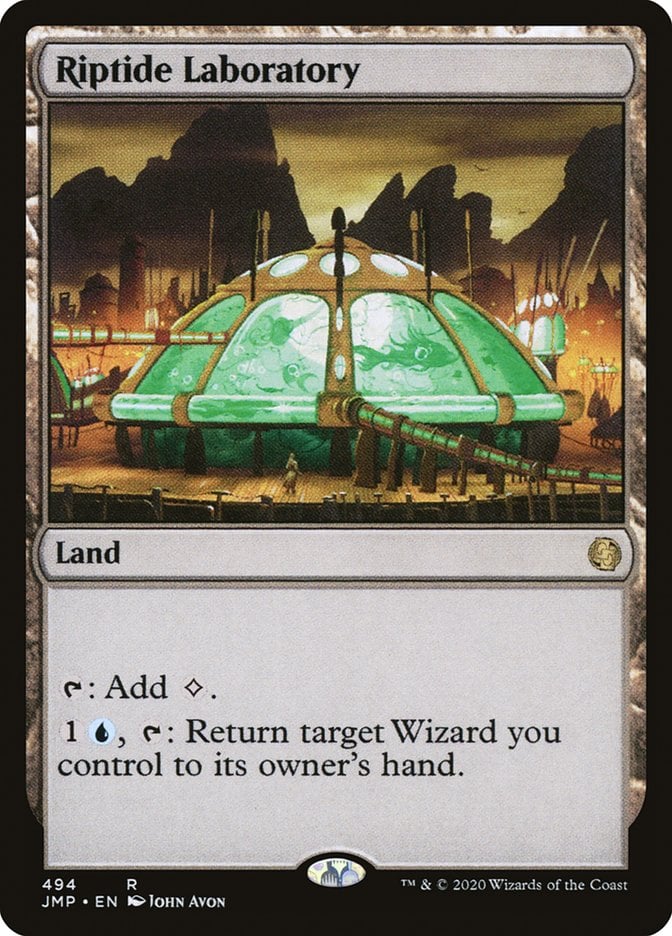
Riptide Laboratory has a lot of utility. It protects Kess, Dissident Mage and Niv-Mizzet, Parun as well as Jeleva; we can use it to reset Jeleva if we’ve cast all the spells it exiled. It’s not much, but it’s honest work.
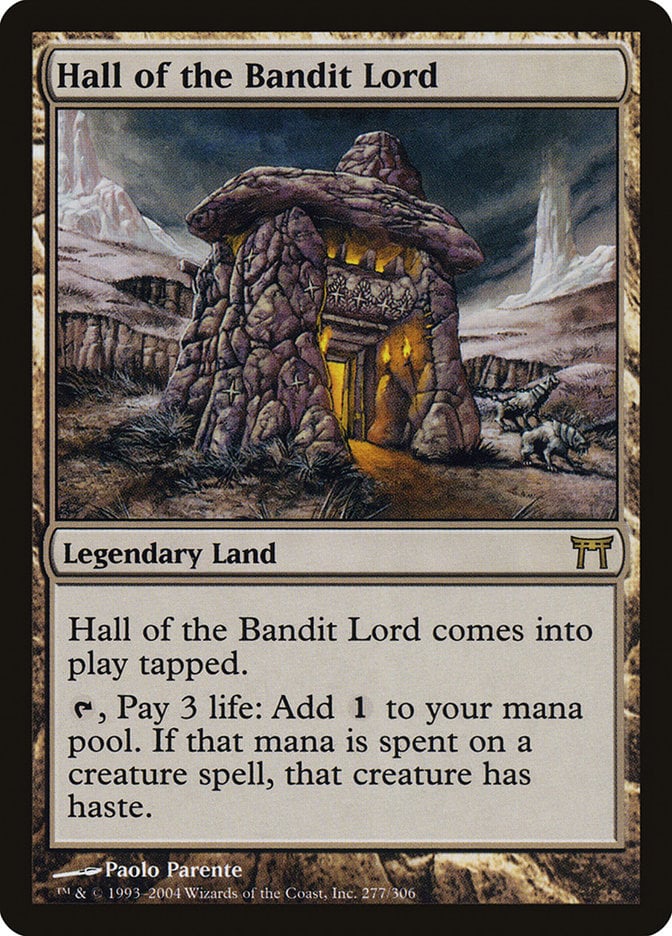
Hall of the Bandit Lord provides the perfect solution to Jeleva’s weakness of needing to survive a turn by giving them haste. Paying 3 life for a mana can add up, especially later in the game, but getting a spell instantly is often worth the investment.
Beyond these value lands, our mana base focuses on fixing. We have an assortment of shock lands and fetch lands, our triome, and enough dual lands to handle the color-intensive spells along our curve.
The Strategy
Unleash the biggest instants and sorceries upon your foes!! Honestly, it’s that simple. This deck’s game plan is to play Jeleva on turn 3 or 4 and start swinging. Beyond our commander, the early game focuses on setting things up.
Our big instants and sorceries give us an excellent late game. Casting spells like Breach the Multiverse and Time Stretch for free is far from bad, but these cards are worth their mana costs.
Because we have such a powerful late game, we usually play as a control deck. We have very few creatures so we get to leverage a variety of wraths better than creature-based opponents. When wiping the board isn’t appropriate, we have plenty of spot removal and some countermagic to keep things in check. Try not to kill everything. I’ve fallen into this trap; it leaves you short on interaction and irritates your opponents. Avoid drawing their ire. The last thing you want as the controlling blue deck is to become the target.
Our best late-game win conditions are Niv-Mizzet, Parun, Kess, Dissident Mage, and Thousand-Year Storm. Each of these represents the most value from our big spells. When you draw one, play towards it and do your best to keep it alive, even if that means waiting a couple of extra turns so you have the mana to cast the finisher and hold up countermagic.
Combos and Interactions
While the deck lacks infinite combos or loops, two interactions warrant further discussion.
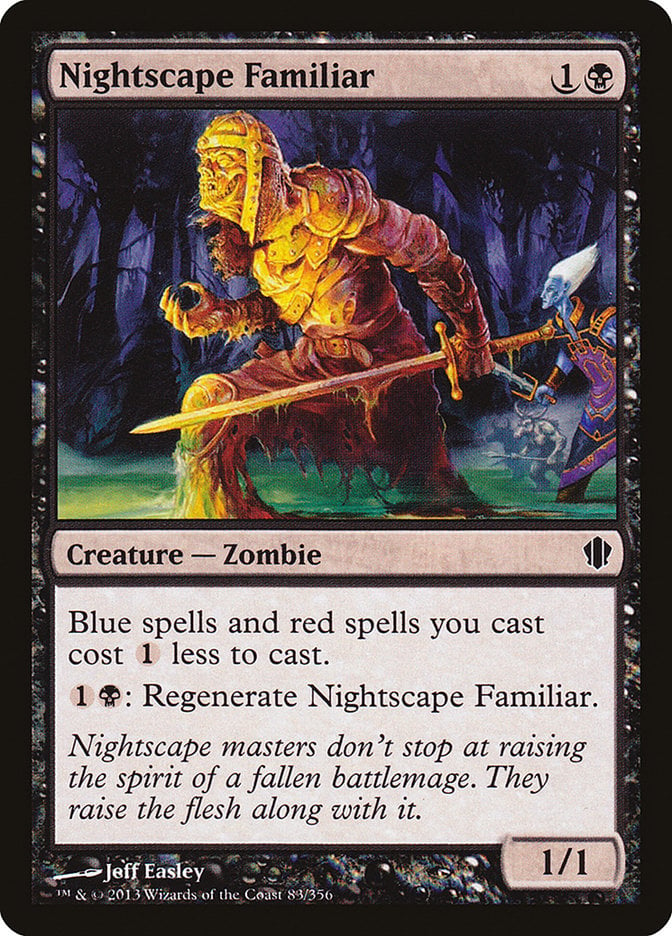
Nightscape Familiar is a bit of an awkward card in this deck. It provides incredible ramp for a Grixis deck; reducing the cost of spells produces several mana worth of value a turn compared to traditional mana dorks that tap for mana. But it reduces the cost of Jeleva, so they exile fewer cards. Because of this, try to avoid casting the Familiar until you’ve played Jeleva once or twice. It’s a better late-game ramp piece than early-game anyway.
Niv-Mizzet, Parun + Harmonic Prodigy
This is a game-winning interaction that proves how busted doubling triggers can be. You need both Niv-Mizzet, Parun[/card], and Harmonic Prodigy in play.
Cast an instant or sorcery. Niv-Mizzet’s card draw ability triggers twice, so you’ll draw two cards. That’s all well and good. Then Niv-Mizzet’s damaging ability triggers—twice off each card. So every instant or sorcery you (or your opponents!) cast effectively casts Divination and Pyrokinesis for free. If you set this up and your opponents don’t have an answer, victory is almost assuredly yours.
Rule 0 Violations Check
This deck walks the straight and narrow pretty well. The only elements some tables might balk at are the extra turn spells, Time Warp and Time Stretch, especially since you can cast them for free. If that’s the case with your playgroup, they can easily get swapped out for extra combat spells, which provide similar value for Jeleva, or any big instants and sorceries that suit your fancy.
Budget Options
As I often say, the mana base is one of the best spots to start making budget cuts. Fetches and shocks are so much more expensive than gain lands and gates it’s embarrassing. Cutting untapped lands for tapped lands always impacts the deck’s power level, but this is a casual list. All the MDFCs can get replaced with basic lands of the corresponding colors; the same for any colored value lands.
Time Warp can get replaced with a cheaper extra turn spell like Walk the Aeons or cut altogether—if you do substitute it, I recommend using an extra turn spell that doesn’t exile itself upon resolution for Kess and Mizzix's Mastery value.
Vampiric Tutor is the most expensive card in the deck. A lesser tutor like Wishclaw Talisman or Scheming Symmetry can do the trick, or you can play more card draw.
Cyclonic Rift is a prime spell to cut for budget concerns since some people don’t care for it in casual games anyway. Any other wrath works; I’m a fan of Displacement Wave to deal with smaller threats while leaving your top-end unscathed. Toxic Deluge can be similarly replaced.
Relentless Assault is a serviceable alternative to World at War; similarly, you can swap Bribery out for Inevitable Betrayal.
Other Builds
Jeleva, Nephalia's Scourge has a lot of flexibility as a value-oriented commander. While this deck zeroes in on the free aspect, you could build a theft deck focusing on casting your opponents’ spells. Cut some of the top end in favor of effects like Don Andres, the Renegade, and Tasha, the Witch Queen to make use of that angle. Since a theft deck lends itself well to assertive strategies, you can trim some of the interaction to make room for cards like Plargg and Nassari and Siphon Insight to steal even more of your opponents’ spells.
Another angle you could take would be vampire typal. Various Innistrad-based MTG sets have left with plenty of vampire options while our visits to New Capenna and Ravnica give us plenty of and vampires like Evelyn, the Covetous and Mirko, Obsessive Theorist. Jeleva can support the typal deck from the skies by casting spells like Kindred Dominance and New Blood for free. Like with the theft theme, you’ll cut the top-end and spellslinger strategies, plus board wipes since a deck playing to the board doesn’t want to reset itself.
Commanding Conclusion
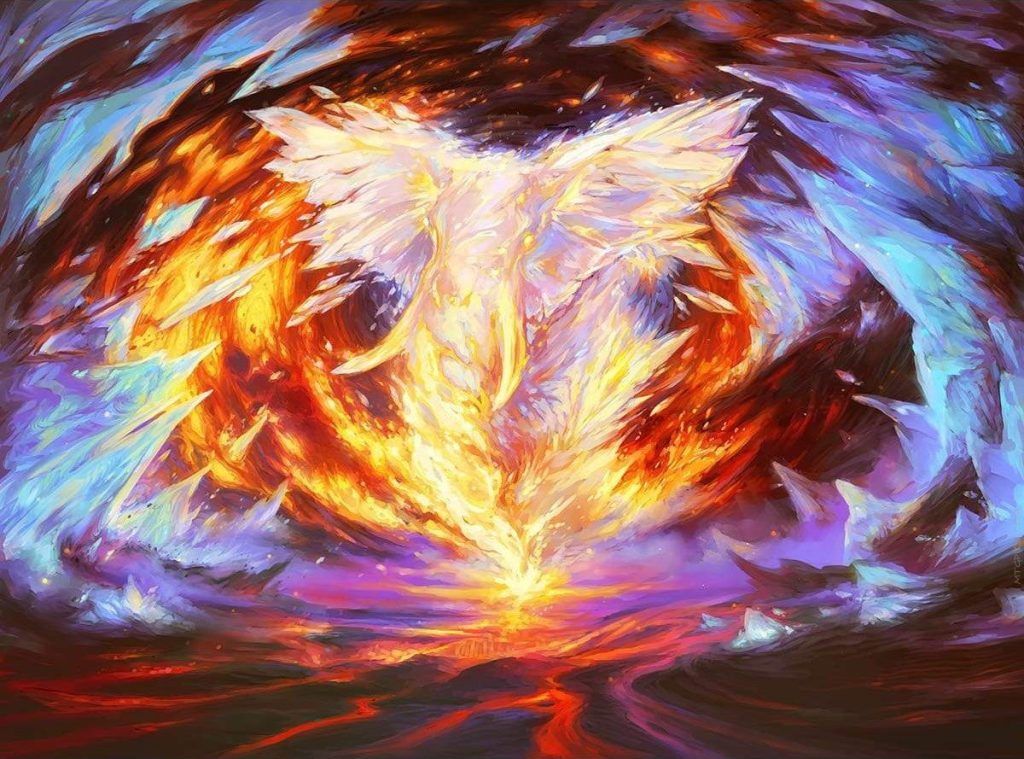
Magma Opus | Illustration by Liiga Smilshkalne
While modern Magic set design is flush with for-Commander cards that introduce new staples and powered-up versions of old favorites, it can be nice to return to a simpler time in the game when the format was all about big, splashy plays. I wouldn’t go so far as calling modern EDH bad but I’ve always found a certain charm in playing with less of the modern staples.
Jeleva, Nephalia's Scourge is a great commander for that style of deck. It’s powerful, but not stiflingly so, and can encourage a range of flexible play styles and power levels.
What’s your favorite Grixis commander? How would you build Jeleva? Let me know in the comments below or on the Draftsim Discord!
Stay safe, and keep casting spells!
Follow Draftsim for awesome articles and set updates: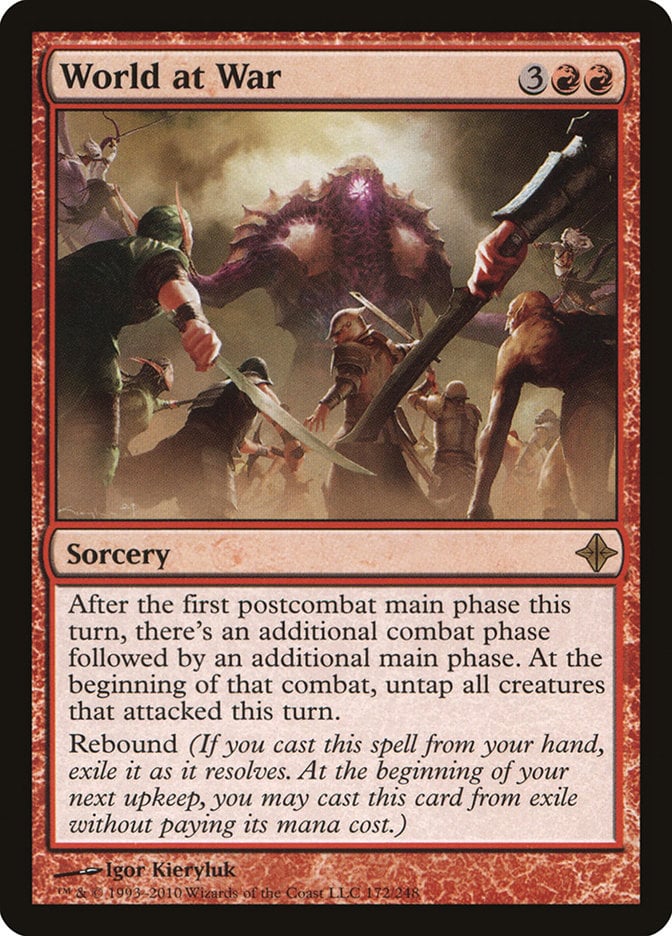
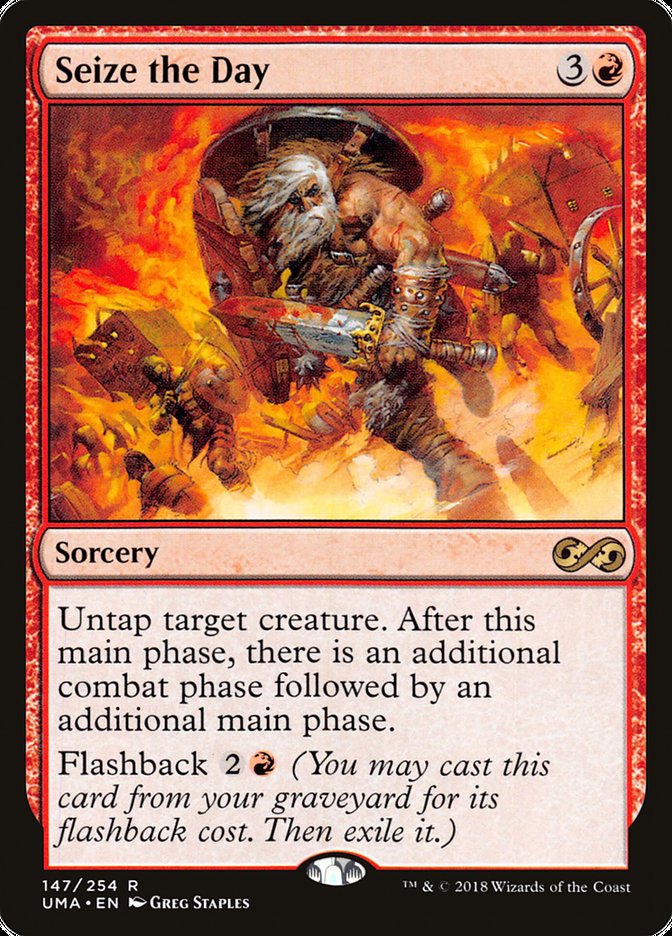
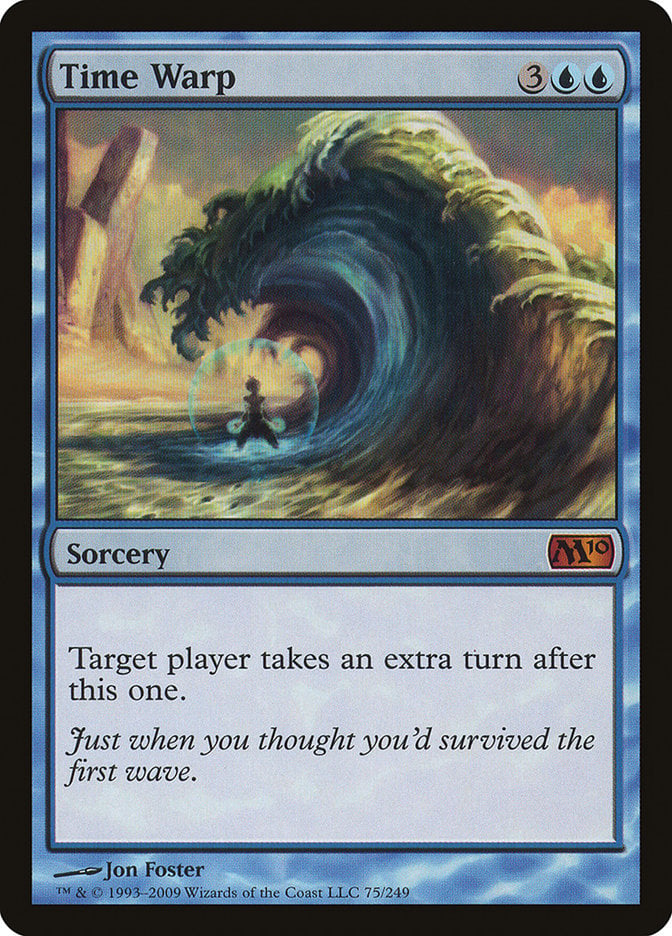
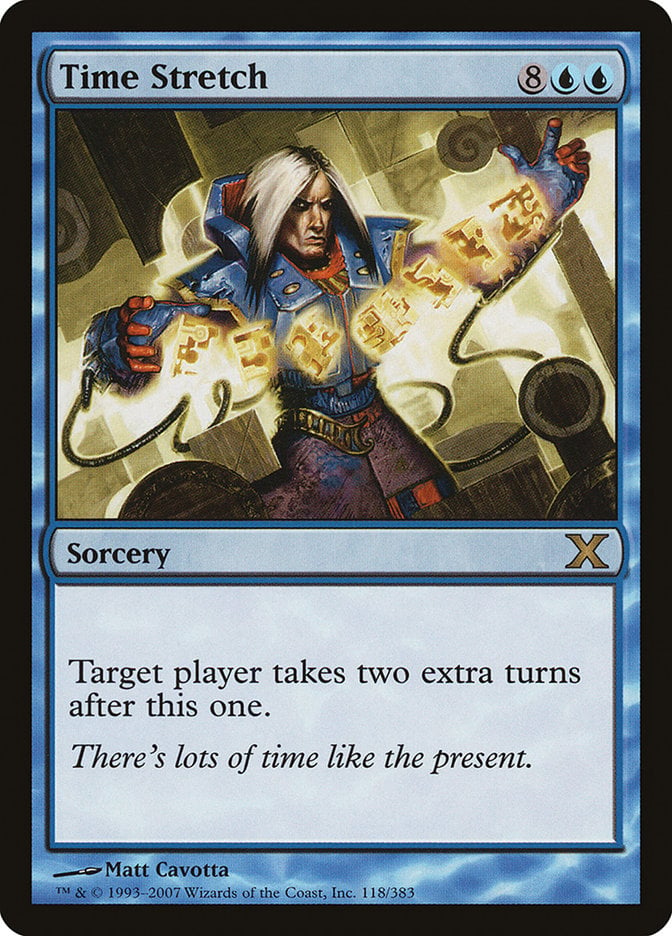
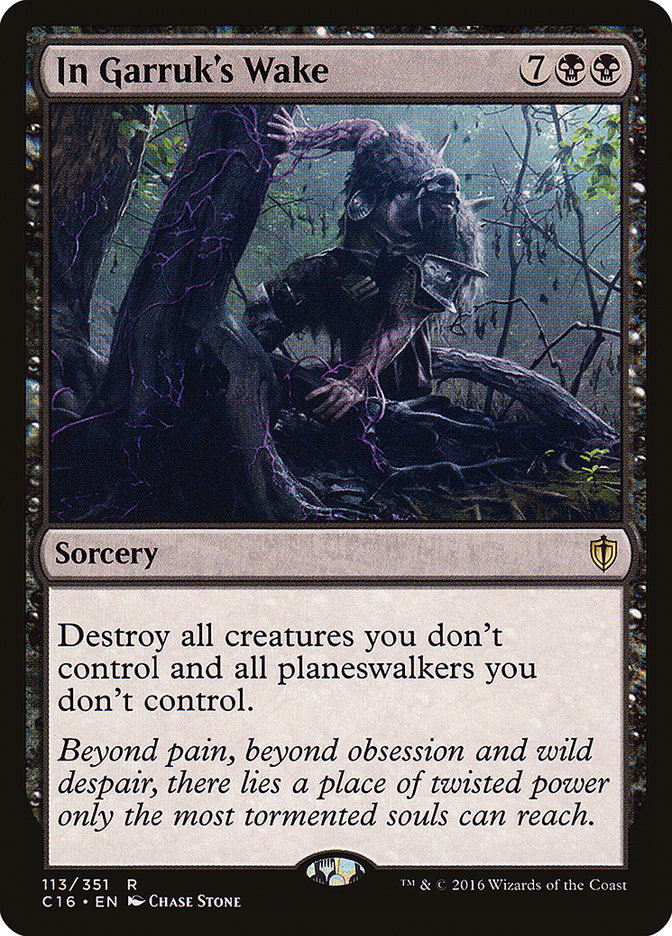
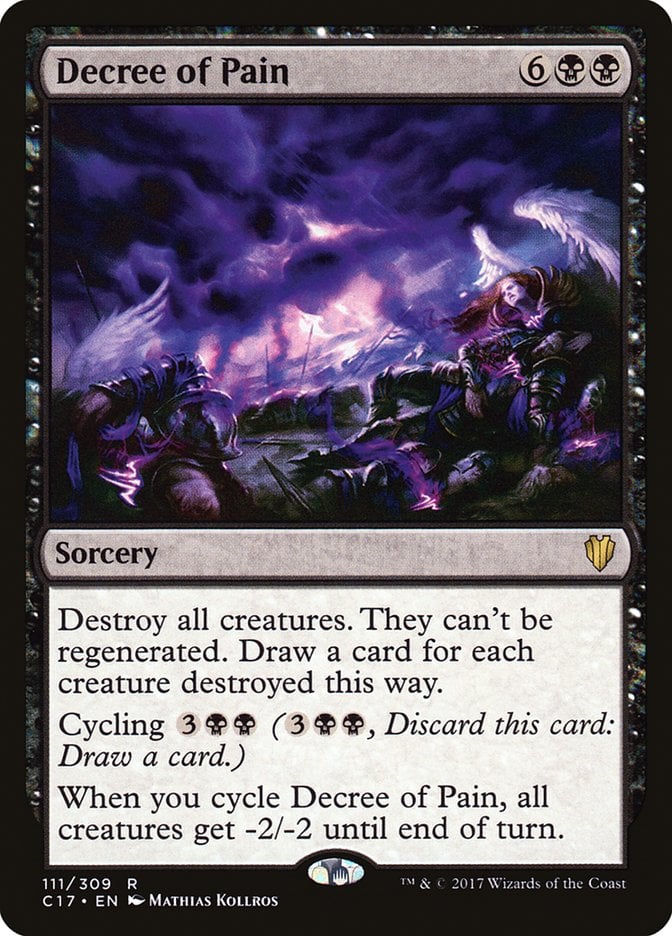
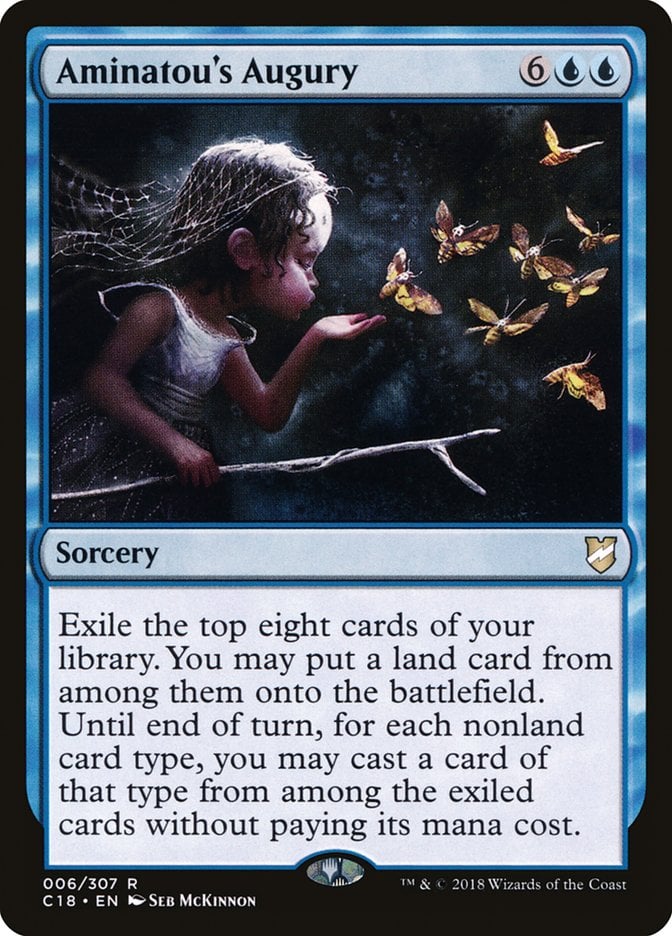
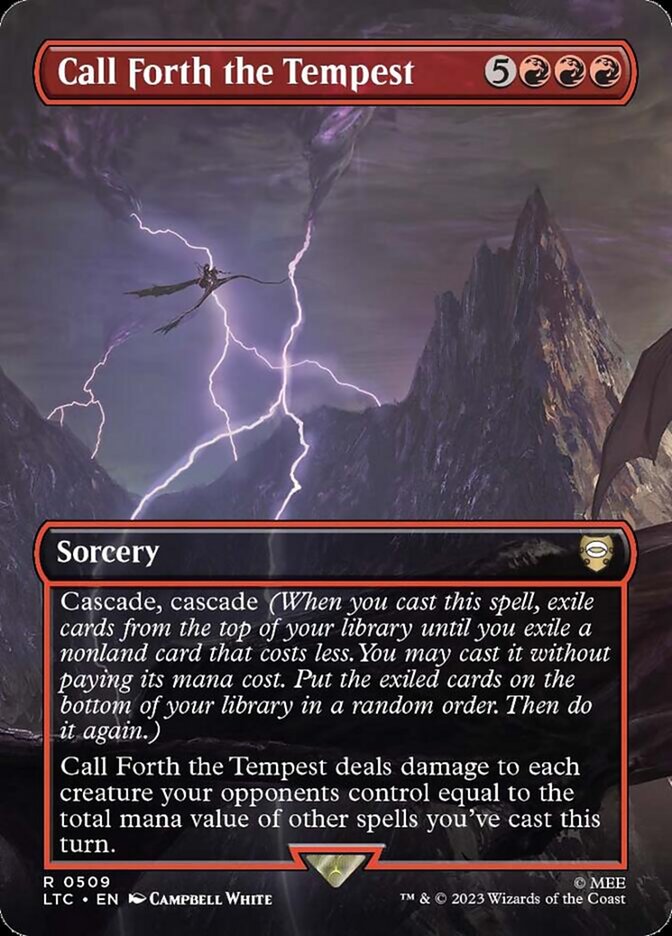
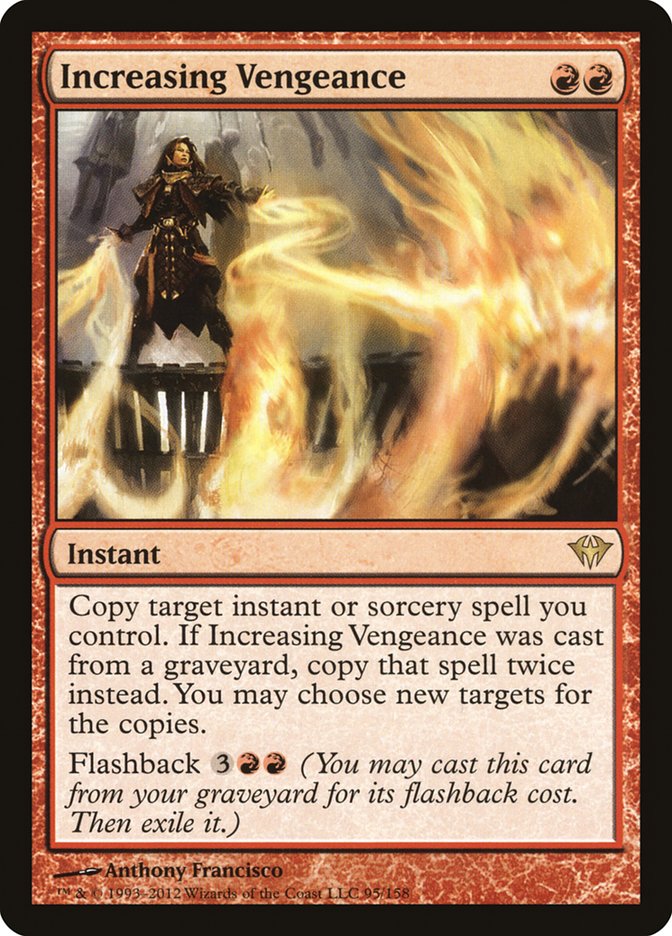
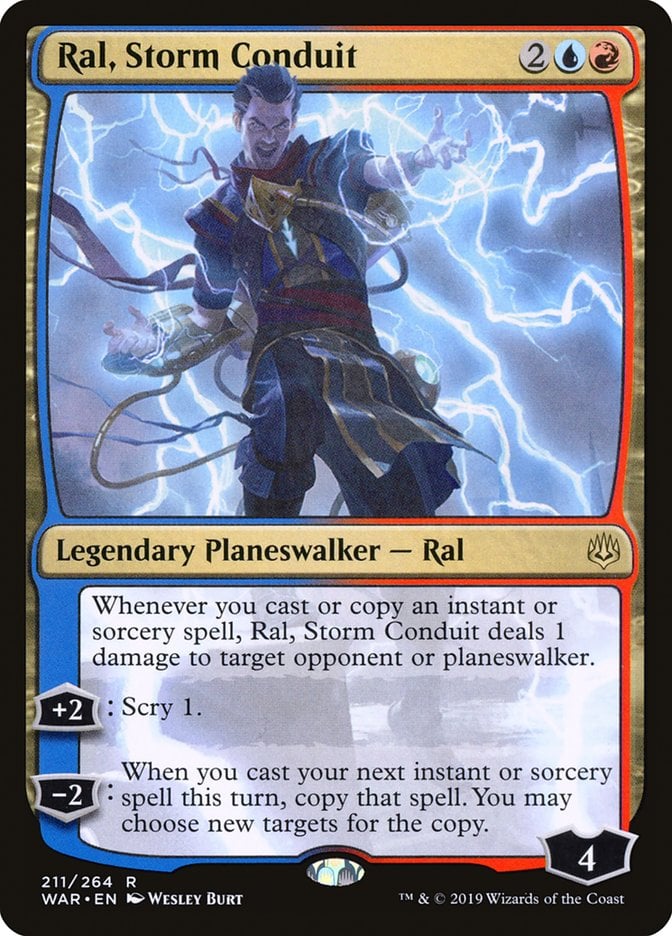
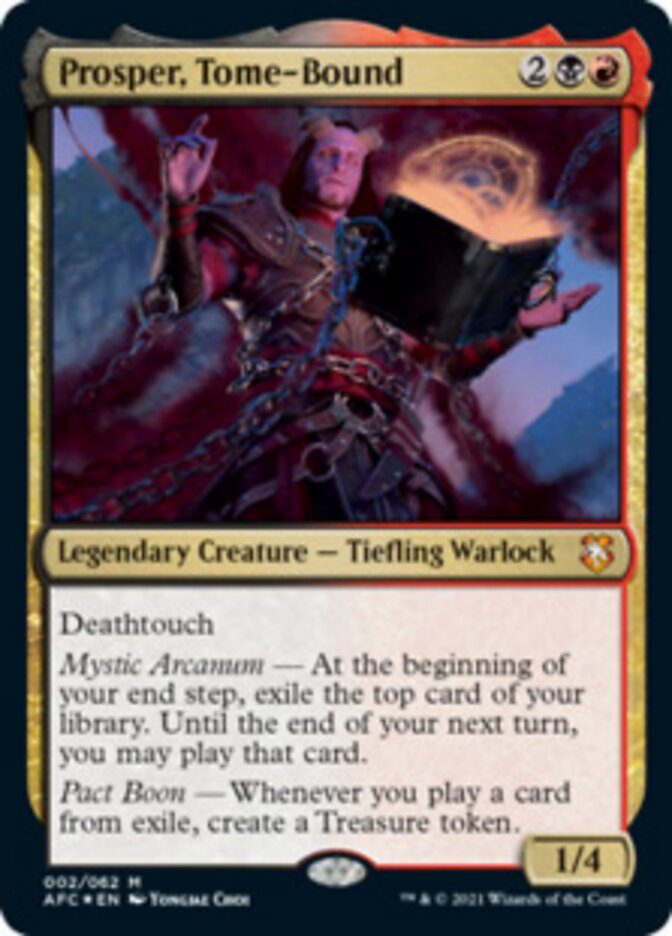
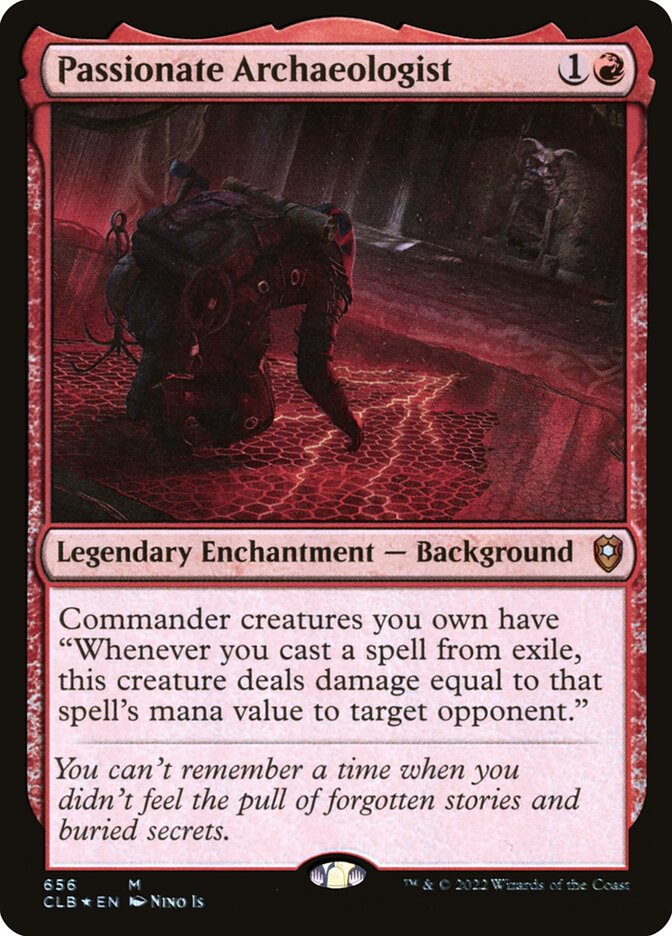
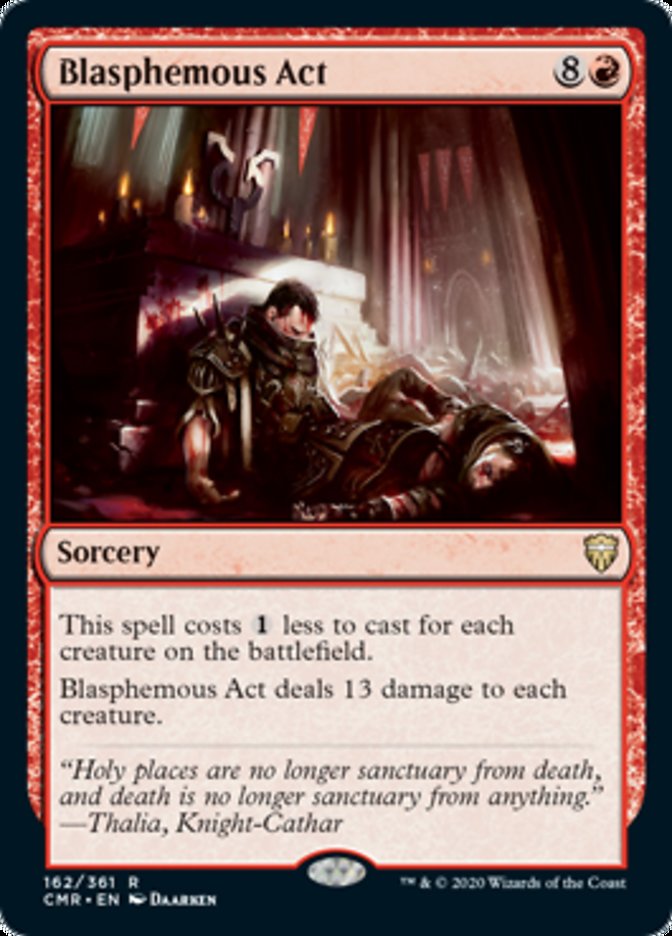
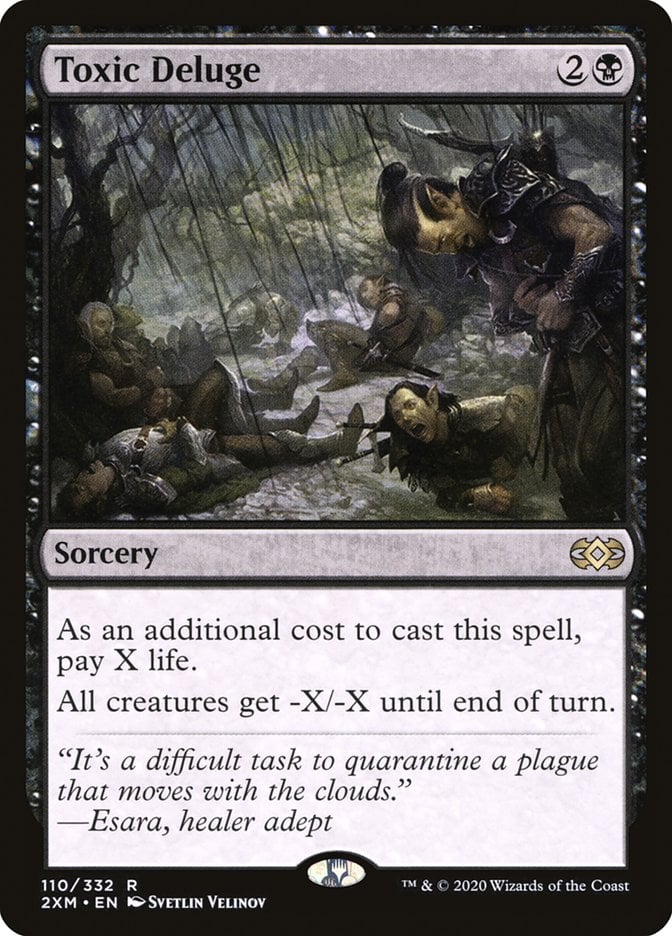
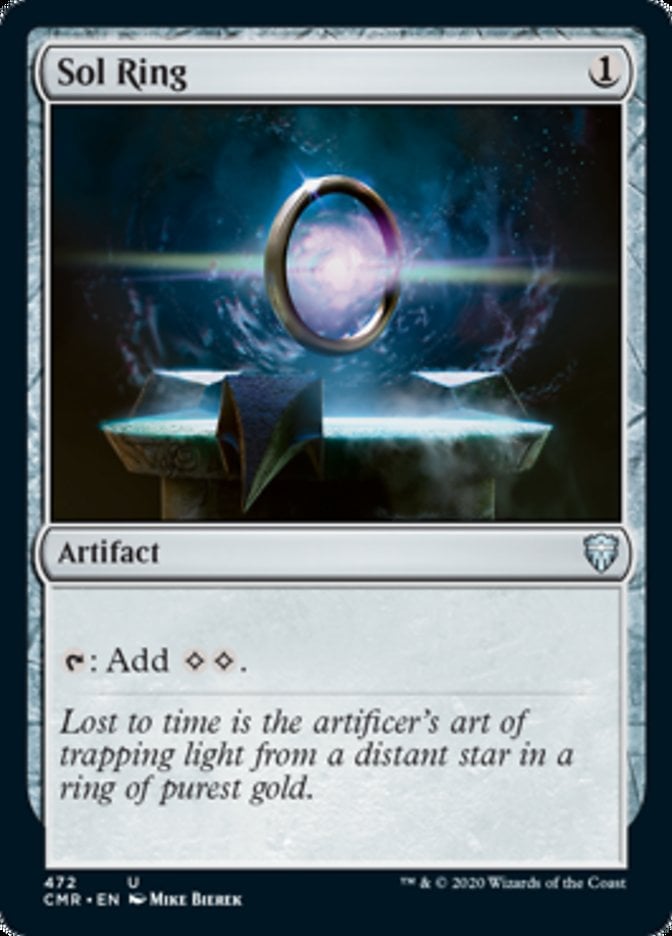
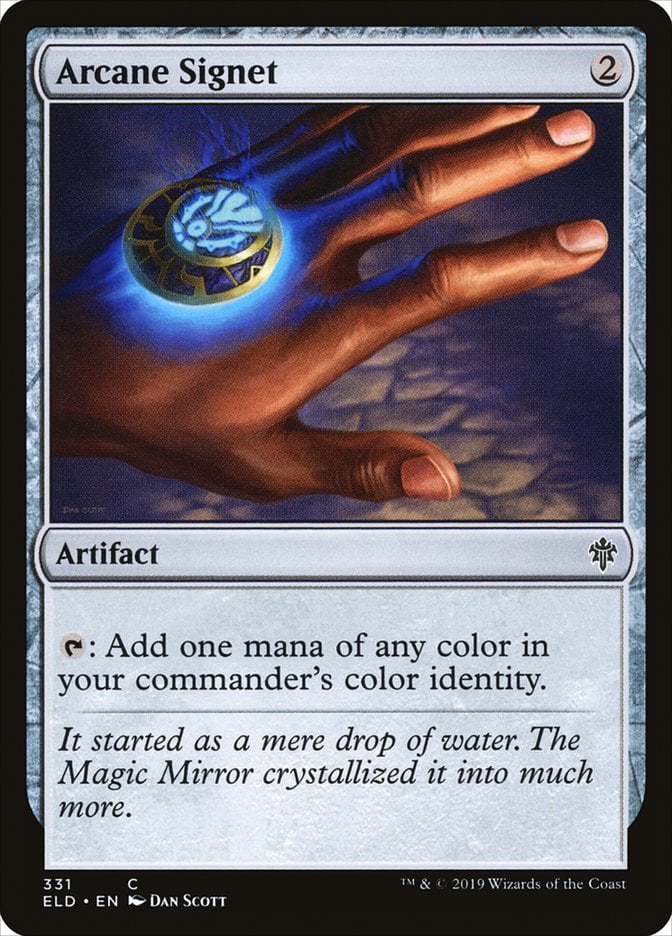
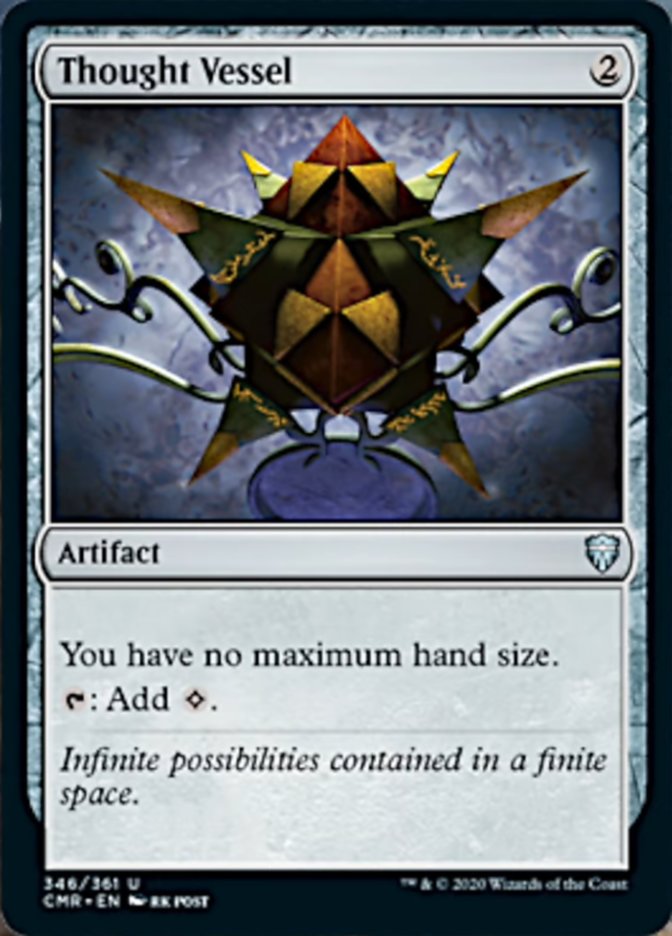
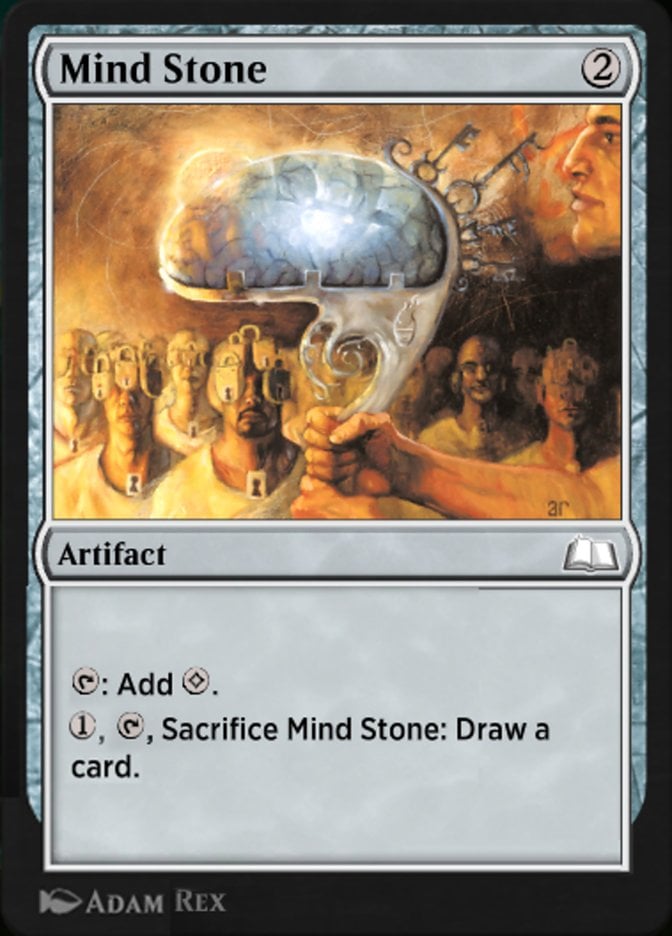
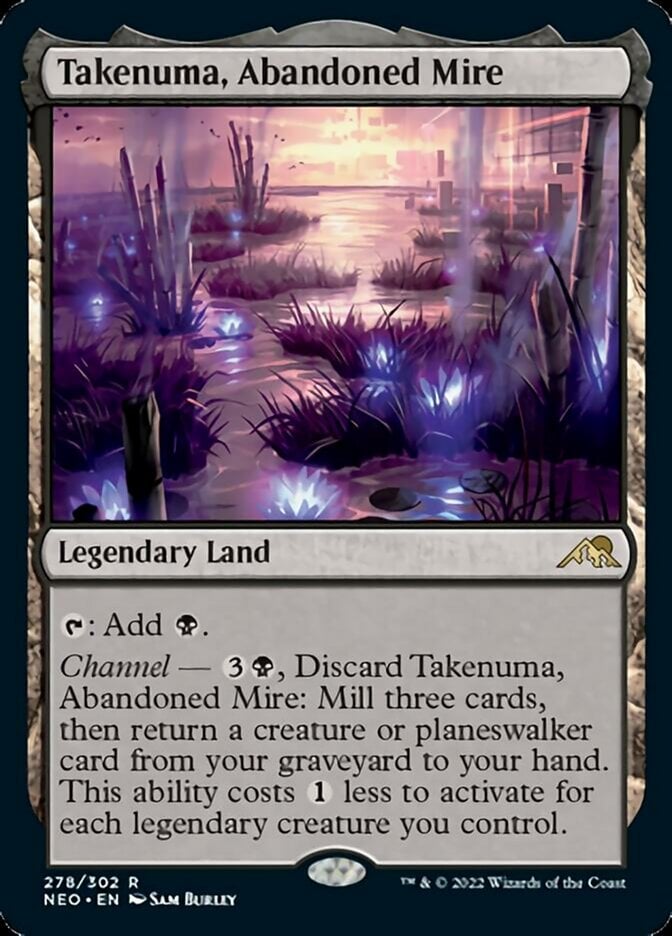
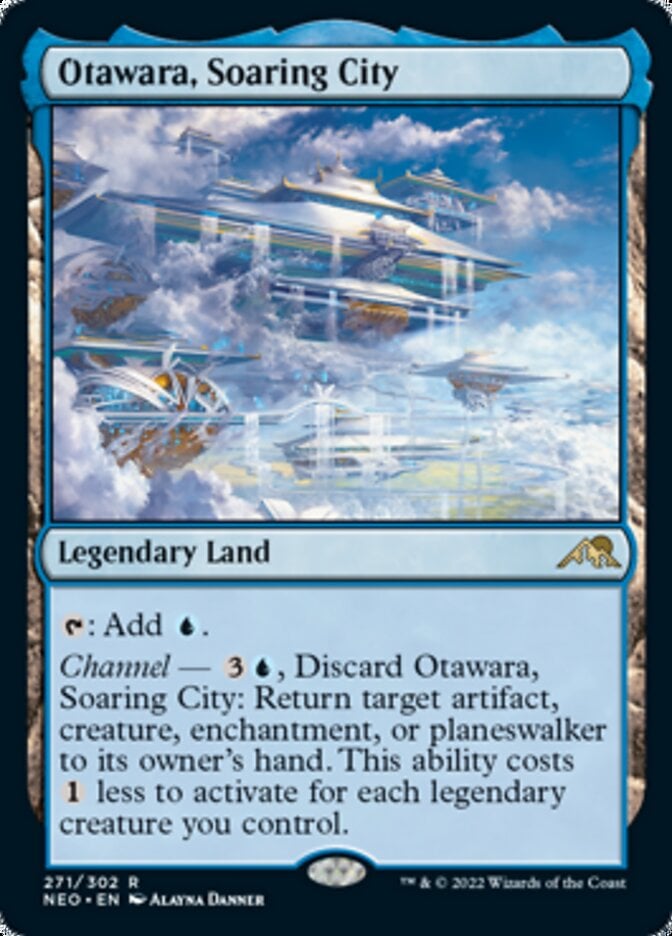
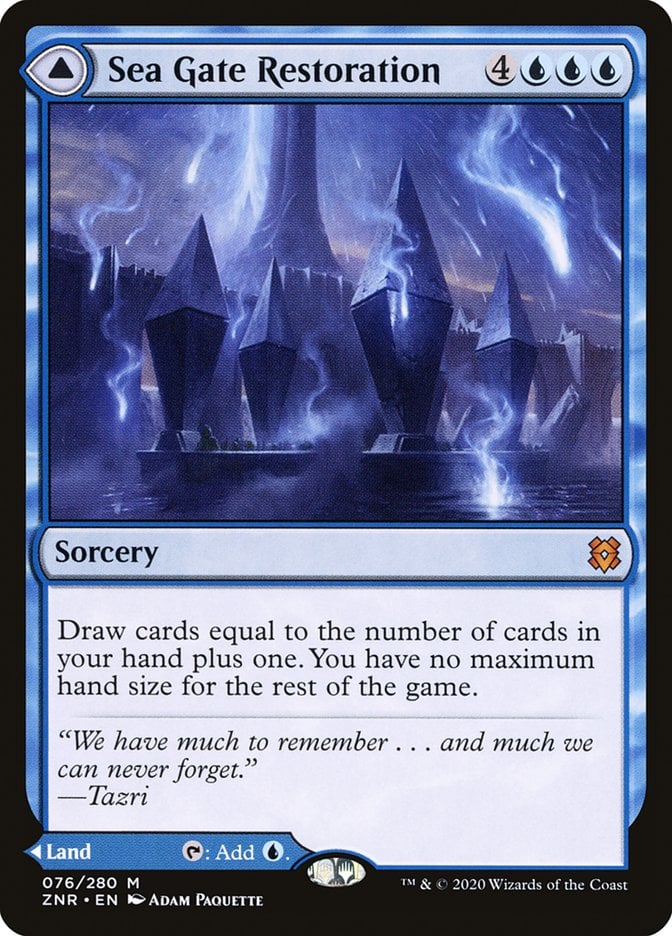
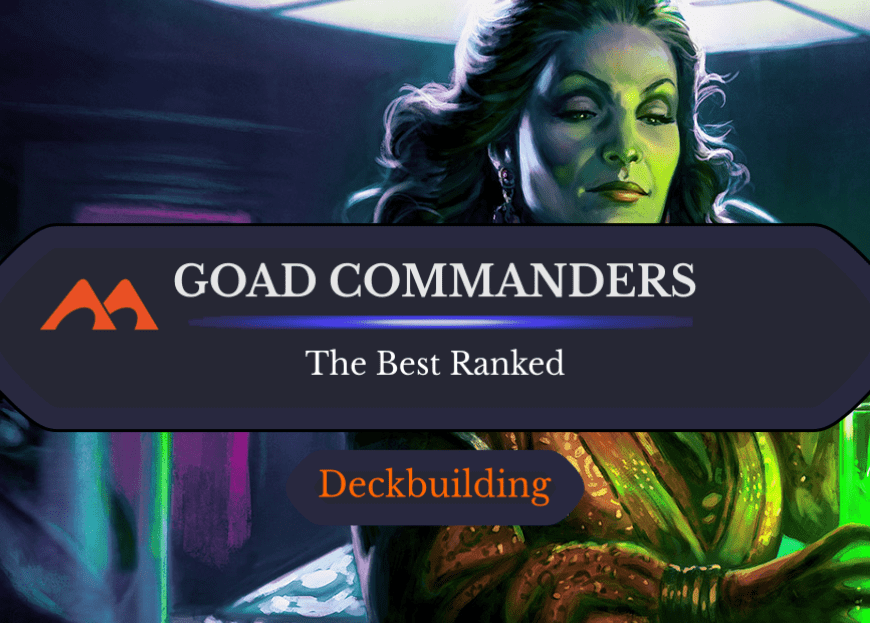
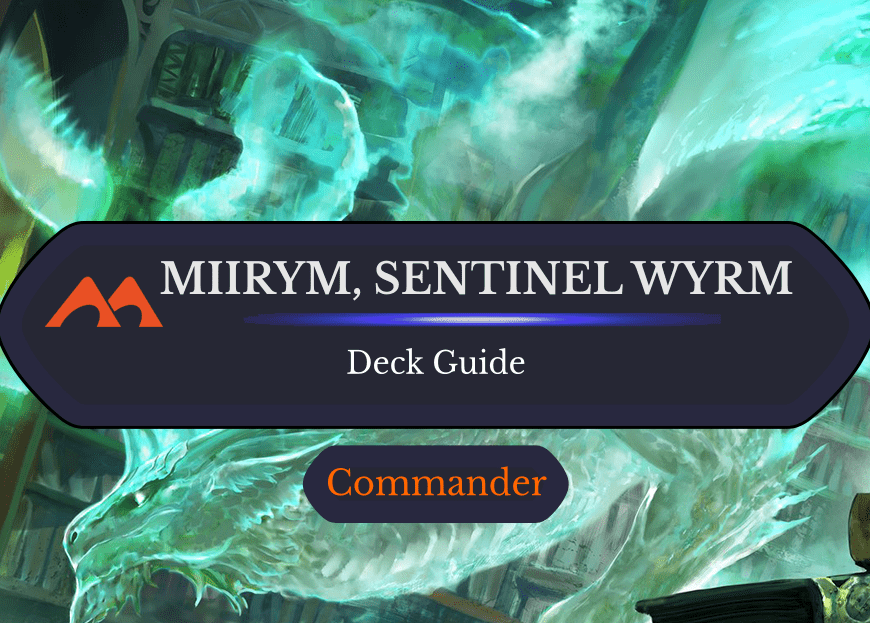
Add Comment